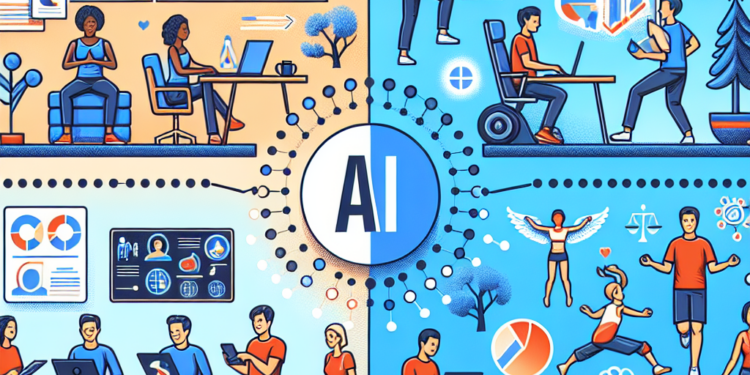In today’s fast-paced society, many individuals turn to freelance work as a way to achieve a better work-life balance. With the rise of artificial intelligence (AI), freelancers are finding new ways to streamline their workflow and increase productivity. From automated project management tools to AI-powered virtual assistants, technology is revolutionizing the way freelancers work and enhancing their overall quality of life.
One of the key benefits of AI in freelance work is the ability to automate repetitive tasks. Many freelancers spend a significant amount of time on administrative tasks such as invoicing, scheduling, and project management. With AI-powered tools, these tasks can be automated, allowing freelancers to focus on more important aspects of their work. For example, project management tools like Trello and Asana use AI algorithms to automatically assign tasks, set deadlines, and track progress, saving freelancers time and reducing the risk of human error.
AI also plays a crucial role in improving communication and collaboration among freelancers and their clients. Many freelancers work with clients from different time zones and cultures, making it challenging to stay connected and up-to-date on projects. AI-powered chatbots and virtual assistants can help bridge the communication gap by facilitating real-time conversations, providing instant feedback, and even translating messages into different languages. This level of automation not only saves time but also ensures that freelancers and clients are always on the same page.
Moreover, AI can help freelancers better manage their workload and prioritize tasks. Freelancers often struggle with balancing multiple projects and deadlines, leading to burnout and stress. AI algorithms can analyze a freelancer’s workload, identify potential bottlenecks, and suggest ways to optimize their schedule. For instance, AI-powered time-tracking tools like Toggl and Harvest can help freelancers track their time and improve their productivity by highlighting areas where they may be wasting time or working inefficiently.
AI can also assist freelancers in finding new opportunities and growing their businesses. Freelancing platforms like Upwork and Freelancer use AI algorithms to match freelancers with relevant projects based on their skills, experience, and availability. This level of automation makes it easier for freelancers to find new clients, expand their networks, and increase their income. Additionally, AI-powered analytics tools can help freelancers track their performance, identify trends, and make data-driven decisions to improve their services and attract more clients.
Furthermore, AI can enhance freelancers’ work-life balance by providing personalized recommendations for self-care and stress management. Freelancers often work long hours and face high levels of stress due to the unpredictable nature of their work. AI-powered wellness apps like Headspace and Calm can help freelancers relax, reduce anxiety, and improve their mental well-being through meditation, mindfulness, and breathing exercises. These apps use AI algorithms to tailor their recommendations to each individual’s needs, making it easier for freelancers to prioritize their health and stay balanced.
In conclusion, artificial intelligence is reshaping the freelance industry and empowering freelancers to achieve a better work-life balance. By automating repetitive tasks, improving communication and collaboration, and helping freelancers manage their workload, AI is revolutionizing the way freelancers work and enhancing their overall quality of life. With the right tools and technologies, freelancers can focus on what truly matters, grow their businesses, and enjoy a more fulfilling and balanced work-life experience.













